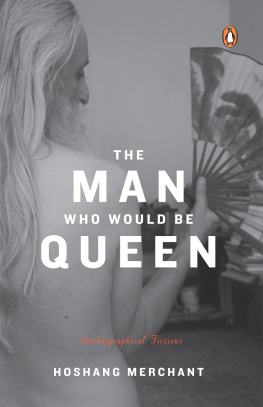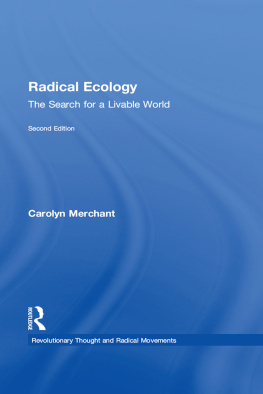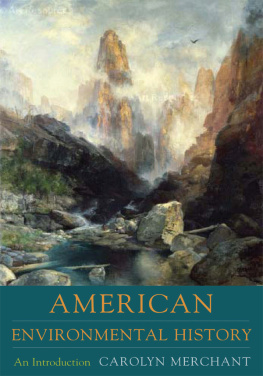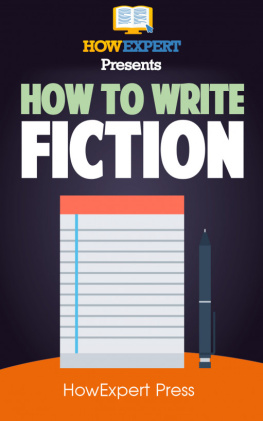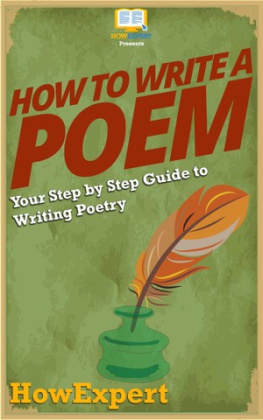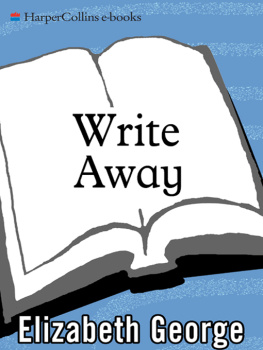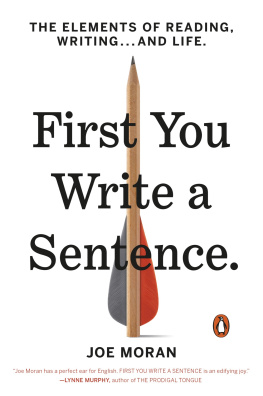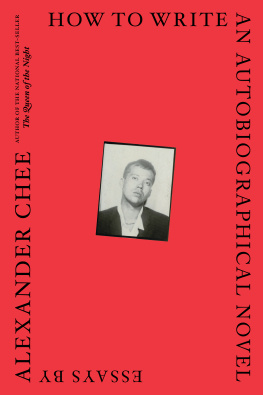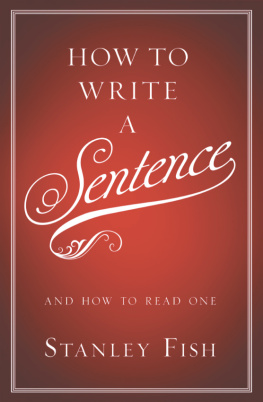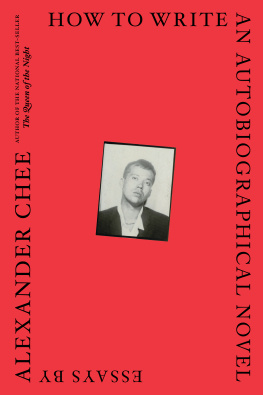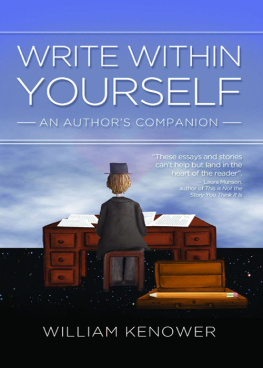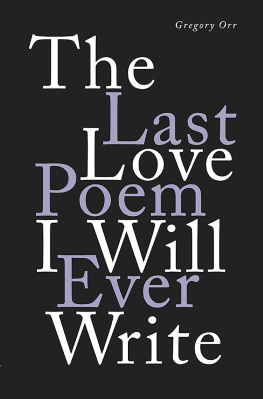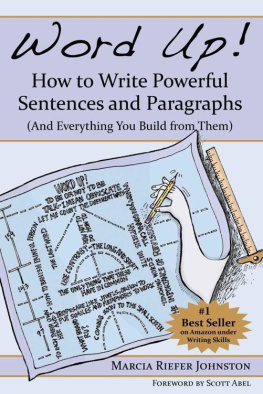Hoshang Merchant inherits his moralism from his Zoroastrian grandfathers, his aestheticism from a neurotic mother and his hedonism from his fathera young widows heir. Trained in the West, Merchant chose to study Eastern religions during his travels; a democrat by education, he is aristocratic by instinct; an intuitive poet, he is a professor by profession. He has published many collections of poetry and is the editor of Yaarana: Gay Writing from South Asia. He lives alone in Hyderabad in a home he has made for himself where he fathers his books, his students and a young friend.
I
No Mans Land
Youth: India, 19471968
We are all murderers and prostitutesno matter to what culture, society, class, nation one belongs, no matter how normal, moral or mature, one takes oneself to be.
R.D. Laing
Politics of Experience
These two then (which Avicen calleth the Corascene bitch and the Armenian dogge) being put together in the vessel of the sepulcher, doe bit one another cruelly, and by their great poyson and furious rage, they never leave one another till both of them by their slavering venom and mortall hurts, be all of a goarebloud, over all the parts of their bodies; and finally killing one another after their death, changeth before which time, they loose in their corruption and putrification, their first natural formes, to take afterwards one onely new, more noble, and better forme.
An Alchemic Text
Do you wish to go naked before your friend? He who makes no secret of himself excites anger in others: That is how much reason you have to fear nakedness! If you were gods you could then be ashamed of your clothes!
Nietzsche
Thus Spoke Zarathustra
My first impression of my mother is her moving around my sickroom. Her hair was down to her waist. She wore a green kimono.
My first photo shows me seated in the lap of granny, an elderly neighbour. I am frowning, my hands cup my face. The yellow print dress was my favourite. (My grandparents disapproved of my parents marriage since mother was a divorcee.) Father took the photograph in the late afternoon sun. I sat in grandfathers lap and pulled his beard. Once I wore his priests cap as he napped.
The barred window is still there to which I clung before being sent off to school. I would sit in class with elder sister. Father was remote: a young face in dark glasses looking over my crib during malaria fevers. I had incurable eczema. At birth I bled hours from the severed umbilicus. Once an insect bite on the penis: mother beat a confession out of me, father carried me to a doctor. During haircuts I wept and was given caraway seed-candies. I hated boarding school and was brought home in days.
Arrival of a new baby: father placed collyrium, rose water, rice, a silver rupee, a vigil lamp, a portrait of Zoroaster, pen, ink and paper in a puja tray. The goddess of good fortune would write the newborns future. I would sit in my sisters crib and feed her milk out of a bottle. Mother lay in a hospital room amid a scent of phlox. As we left her with the tiny new baby she pined.
I was the only boy at school. Mother had decided I wouldnt swear or be rough. I sang, danced, cooked and sewed. I could not thread needles. I hated English but loved history. At home I dressed in a sari and sang and danced under the cherry tree with sister. My parents did not like this. One day a man came with a tin box strapped to his neck. Atop the box was a rag doll whose hands he manipulated with a string tied to his toe. For an anna each, children could press an eye to one of the two windows of this magic box and see views:
Delhi ka Durbar dekho
Agra ka Taj Mahal dekho
Kathputli ka nautch dekho
Vyjanthimala dekho
Dekho bacche dekho
Only his commentary did not have anything to do with the images in the magic lantern.
At seven I became a Zoroastrian. My grandfather, an aunt of mothers (her mother died insane), gods 101 names. I addressed fervent prayers to a rosy-cheeked man whose blond locks coiled around him like snakes. His turban was like grandfathers. I went to school, returned and after dinner prayed and fell asleep instantly. In Zoroasters huge fire temple portrait I saw only his feet. I wore a sacred girdle round my waist, to separate the lofty from the gross.
We moved from our two-room apartment to a vast bungalow by the sea, with a fernery and a wild bamboo garden. The house was green and built athwart a hill. At ebb tide I saw rocks come up from the water. I dreamed of lost continents. It rained days. The brain-fever bird. Jasmine. The old chandelier dropped crystals we collected.
Dropping us off at school each morning father tarried at the shopping centre exchanging compliments with the pharmacist, the laundry girls, the storekeepers. He was known by his six-cylinder Morris with a Great Britain license plate. Doors were opened for him as he arrived late for work, at his traditional hour. As he went through the mills printing, sizing or dyeing departments he hauled up idling workers, his fits of temper and abuses ringing from the tin-roofs. Then he was served breakfast: eggs in butter, without peppers. Lunch from the mess was rounded off by a nap in a low chair. A masseur suspended him six inches from the earth daily. He walked better when let down again.
Then a shower in the specially installed shower stall and fresh hankies and cologne to beat the heat. Then holding of court for labour problems with slaps meted out to offenders. Then came owers from the company gardens: carnations, cannas, roses, which mother arranged for evening tea. But father had come up the hard way. After repudiating an inheritance he started off again washing dyestuff drums for Rs 75 a month. Now he received pay-offs from dyestuff dealers for business favours.
During summer vacations in Poona we saw the ex-Maharani Chimnabai Gaekwar of Baroda drive by on the Bund in a 30s Rolls-Royce. She wore chiffon and pearls and, as the car rolled by at 5 mph, we saw the old face impassive and white, laced with wrinkles. Her equally impassive Indian chauffeur tooled her home around sunset. Mother told us she had poisoned the Gaekwars heir to further the chances of her own son.
On a visit to an old palace we saw the royal bed, where a dog had littered.
My parents quarrelled. A policeman stationed to ward off bootleggers often intervened. Grandfather sided with father, menfolk with menfolk.
A court-clerk arrived with a paper for my mother to sign. She wept. Father wasnt home. Hed sued for divorce. Eden ed. We were herded in the six-cylinder Morris and taken to a lawyer. Could we choose between our parents? Our parents reconciled. Mother bought an emerald and crystal for her roses, father, a gramophone and waltzes.
I went to a boys school. I didnt play cricket. The lady teacher liked me, so did the Jesuit. A phone call for me: Why did you volunteer to go to a boarding school? Father had sued for divorce a second time. That recess I was particularly alone. When father came to fetch me for boarding school I refused to go. I started taking the suburban train 14 kms to school. I recited a prepared speech before a judge: If Im separated from mother, Id die.

